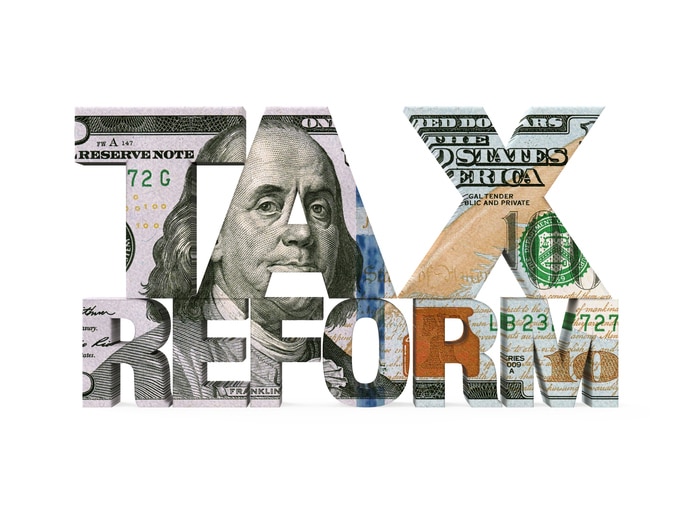As reported in a previous post, the House Ways and Means Committee released three tax bills, referred to as “Tax Reform 2.0,” in late August. All three bills were approved by the House at the end of September. The passage of these bills is the next step toward making additional substantial changes to the already significantly-revised United States income tax code. Republicans hope to get the bills through Congress and enacted prior to the midterm elections. However, due to the overall lack of Democratic support, the prospect of passage through the Senate is unlikely.
About the Bills
One of the primary goals of both the administration and the Republican-controlled Congress is to make permanent those individual provisions that were passed as temporary as part of last year’s Tax Cuts and Jobs Act (TCJA). The Protecting Family and Small Business Tax Cuts Act of 2018 (HR 6760) focuses on doing just that. The bill passed by a vote of 220-191. The other two tax bills, which focus on retirement and education enhancements and promoting new business innovation, could garner greater bipartisan support. The Family Savings Act of 2018 (HR 6757), which includes provisions related to retirement and education savings, passed by a margin of 240-177. The American Innovation Act of 2018 (HR 6756) provides the details on enhancing entrepreneurship. It was approved with a vote of 260-156.
None of the bills include revenue offsets and, together, the three bills are likely to add to projected deficits, which will be a non-starter to a number of members of Congress. The specific provisions in each of the bills are detailed below.
Protecting Family and Small Business Tax Cuts Act of 2018 (HR 6760)
Under the TCJA, many of the individual provisions expire after 2025, while the corporate and business provisions are generally permanent. This compromise was made to come within the $1.5 trillion budget reconciliation debt limit under which the TCJA passed, and Democrats have focused on the fact that Republicans favored corporations over individuals in the bill. HR 6760 is designed to blunt that criticism prior to the midterm elections, while also adding an additional hundreds of billions of dollars to the national debt over a 10-year period.
The bill would make permanent the individual ordinary income rates, the increase in the standard deduction, the increase in the Child Tax Credit, and the elimination of the personal exemption.
It would also make permanent the changes to itemized deductions, including the increased limitation on charitable contributions; the reduction in the threshold for the medical expense deduction; the limitation on the deduction for qualified residence interest; the restrictions on the deduction for personal casualty losses; the termination of miscellaneous itemized deductions with a 2% of adjusted gross income floor; and the repeal of the Pease overall limitation on itemized deductions.
Most controversially, for not only Democrats, but also for some Republicans in high-tax states, the bill would make the limitation on the deduction for state and local taxes permanent.
Additional changes for individual taxpayers that are proposed to be made permanent include: increased contributions to ABLE accounts and the rollovers to ABLE accounts from Section 529 programs; the favorable tax treatment for individuals serving in the Sinai Peninsula; the treatment of student loans discharged on account of death or disability; the moving expense provisions of the TCJA; the termination of the exclusion for qualified bicycle commuting reimbursements; and the limitation on wagering losses.
Very importantly, for small businesses, the bill would make permanent the 20% qualified business income deduction for pass-through businesses and the limitation on losses for taxpayers other than corporations.
In another important provision for estates and gifts, the bill would make permanent the increased exemption amounts. It would also make permanent the increased Alternative Minimum Tax (AMT) exemption amount for individuals.
Family Savings Act of 2018 (HR 6757)
A number of provisions in HR 6757 are more likely to receive some bipartisan support and be taken up in the Senate in some form in the future. These include changes to the tax provisions relating to retirement savings to repeal the maximum age for traditional IRA contributions, make lifetime income investments more portable, exempt retirement account holders with less than $50,000 in tax-favored retirement accounts from required minimum distribution rules, permit penalty-free withdrawals up to $7,500 for birth/adoption expenses, and allow small businesses to join together to offer 401(k) plans.
The legislation would expand Section 529 college savings plans with respect to registered apprenticeship programs, home schooling expenses, qualified education loan repayments, and more coverage of elementary and secondary school expenses.
The legislation would also create a new savings vehicle, “Universal Savings Accounts,” which allow after-tax contributions of up to $2,500 per year and tax-free withdrawals for any purpose.
Other provisions in this bill address election of Section 401(k) safe harbor status; treating non-tuition fellowship and stipend payments as compensation for IRA contributions; prohibiting making plan loans through credit cards or similar arrangements; clarification of rules for church-controlled organizations; treatment of custodial accounts on termination of Section 403(b) plans; treatment of retirement plan contributions by governmental employers for employees; elective deferrals by members of the Ready Reserve; plan adoption rules; nondiscrimination rules for older and longer service participants; and studying PBGC premiums.
American Innovation Act of 2018 (HR 6756)
The third bill is also more likely to receive some bipartisan support as it is focused on encouraging economic growth through entrepreneurs and new businesses. The legislation includes an expanded election to deduct start-up and organizational expenditures of an active trade or business for up to an inflation-adjusted $20,000. Additional provisions expand other tax benefits for start-up businesses.
What’s Next?
Although the three bills passed the House last Friday, it is likely that they will face a significant challenge in moving through the Senate. Many of the provisions are not popular with Democrats and Republicans alike. At the date of this posting, the Senate is not expected to debate the legislation at all.
The Family Savings Act could end up being considered by the Senate, as a number of the retirement-savings changes have some broad bipartisan appeal. Getting rid of the traditional IRA age limit for contributions is quite popular on both sides of the aisle. In fact, a competing Senate bill, the Retirement Enhancement and Savings Act of 2018, contains a number of similar provisions that could potentially be voted on later this year.
The bottom line is that taxpayers could see some of the retirement-specific changes proposed by Tax Reform 2.0 ultimately become law. On the other hand, the bills that would make the individual tax cuts permanent and allow for small businesses to deduct expenses immediately are likely to go no further at this time.
Please direct any questions or comments to Bob Grossman or Don Johnston.
Related Posts
Long-Awaited “Tax Reform 2.0” Unveiled by House Republicans
House Republicans and the White House Working on “Tax Cuts 2.0”
White House Remains Focused on a Second Tax Reform Package
President Trump and House Republicans Planning Phase Two of Tax Reform








